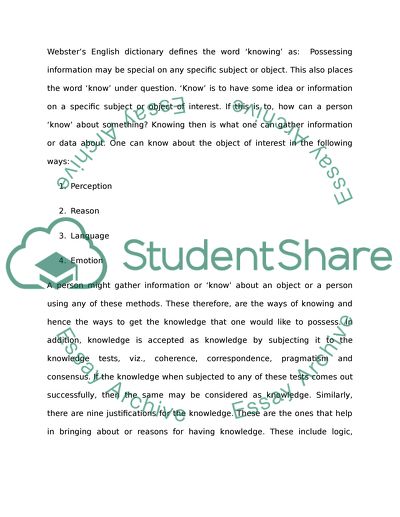Cite this document
(A Guide through the Theory of Knowledge Term Paper, n.d.)
A Guide through the Theory of Knowledge Term Paper. Retrieved from https://studentshare.org/psychology/1512475-are-some-ways-of-knowing-more-likely-than-others-to-lead-to-truth
A Guide through the Theory of Knowledge Term Paper. Retrieved from https://studentshare.org/psychology/1512475-are-some-ways-of-knowing-more-likely-than-others-to-lead-to-truth
(A Guide through the Theory of Knowledge Term Paper)
A Guide through the Theory of Knowledge Term Paper. https://studentshare.org/psychology/1512475-are-some-ways-of-knowing-more-likely-than-others-to-lead-to-truth.
A Guide through the Theory of Knowledge Term Paper. https://studentshare.org/psychology/1512475-are-some-ways-of-knowing-more-likely-than-others-to-lead-to-truth.
“A Guide through the Theory of Knowledge Term Paper”, n.d. https://studentshare.org/psychology/1512475-are-some-ways-of-knowing-more-likely-than-others-to-lead-to-truth.


